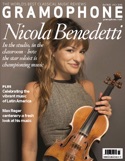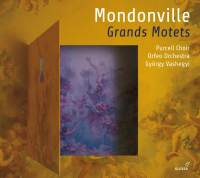Texte paru dans: / Appeared in: |
|
|
Outil de traduction (Très approximatif) |
|
|
Reviewer:
Lindsay Kemp Jean-Joseph Cassanéa de Mondonville, a violinist and composer prominent in Parisian musical life in the mid-18th century, was among the last composers to contribute significantly to the genre of the grand motet; indeed, his examples of these large-scale choral psalm-settings, usually created for the Royal Chapel at Versailles but popular in the concert hall as well, were among the most successful of the time. Their ability to please a crowd undoubtedly rested in their sweet melody, their imposing, sometimes Handelian choruses, and (perhaps above all) their enthusiastic pictorialism: in Nisi Dominus, one of the four motets recorded here, we get in quick succession a drowsy bassoon tucking in the Chosen Ones’ virtuous slumber, archers’ arrows whizzing through choir and orchestra and the noisy knocking of the Lord’s enemies at the city gate. It is surface stuff compared to the noble motets of Lully and Lalande, or Rameau’s beautiful In convertendo, but these pieces are well-written enough – De profundis establishes a satisfying trajectory from penitential to optimistic to clear-eyed glance towards the grave – and are pretty much impossible to dislike.
Nine of
Mondonville’s grands motets survive, and this release adds Cantate
Domino and Nisi Dominus to the seven already spread across discs by
Les Arts Florissants (Erato, 10/97), New College Choir (Hyperion, 11/88) and the
Ensemble Baroque de Limoges (Naïve). The performances are stylish and awake to
the music’s expressive possibilities but fall a little short when it comes to
technical polish: the Purcell Choir (Hungarian, despite their name) lack
incisiveness in the inner parts and precision in passagework, and are sometimes
sluggish at pick-ups; and although there are accomplished solos from haute-contre
Mathias Vidal and soprano Daniela Skorka, some of the other solo singing is not
entirely comfortable. An acceptable introduction to Mondonville, then, but Les
Arts Florissants’ more focused and firmly sung selection (De profundis
plus two others) makes a better listen. |
|
|
Consultez d'autres mois / Browse other months
|
|
|
|
|
|
Cliquez l'un ou l'autre
bouton pour découvrir bien d'autres critiques de CD |
|




